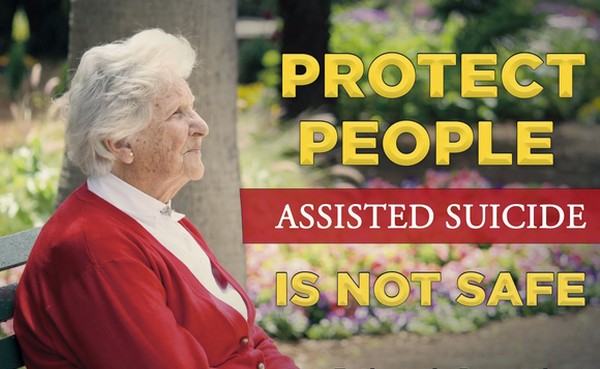End of Life Choice Bill contains flaws that are impossible to fix
 Stuff co.nz 19 June 2018
Stuff co.nz 19 June 2018
Family First Comment: “Parliaments around the world consistently reject bills like this one, because they recognise that the risks are simply too great. Even the most tightly restricted version of this bill would see people slip through the cracks—people who are misdiagnosed, who feel like a burden, who aren’t caught by the safeguards. Their deaths would be wrongful deaths—wrong according to the bill’s own criteria.”
Protect.org.nz
OPINION: Parliament has started hearing submissions on the End of Life Choice Bill, and if the last round of submissions is anything to go by, they’ll hear a lot of opposition.
In response, MPs may be tempted to think they can fix the bill – narrowing the scope, tightening the wording, maybe limiting it to terminal illness and ditching the current provision for grievous and irremediable medical conditions. But in reality, even the safest version of this bill would be dangerous.
This is a hard thing to say and to hear, when there are many stories of suffering and pain that each of us will hope we never have to go through. Both sides of the debate are motivated by compassion and concern for the vulnerable. No-one is coming at this with the intent to harm, but good intentions are not enough.
Researching the international law and experience in places like Oregon, Washington State, Canada, Belgium, and the Netherlands, shows four main issues with even a restricted version of the bill.
First, the eligibility criteria would be broad. Even if limited to people with a terminal illness likely to end their life within six months, doctors acknowledge that prognosis is more art than science. Oregon has a provision like this, but their official reports show that in 2017, somewhere between one and 14 people who were prescribed lethal drugs went on to live longer than their six-month prognosis.
Second, other jurisdictions have failed to craft effective safeguards. For example, the bill states that a person must express a desire for euthanasia or assisted suicide free from pressure. However, pressure is very difficult to detect and requires a long-term relationship between doctor and patient. In Oregon last year, the median doctor-patient relationship before an assisted suicide prescription was just 10 weeks.
READ MORE: https://www.stuff.co.nz/national/politics/104832498/end-of-life-choice-bill-contains-flaws-that-are-impossible-to-fix







